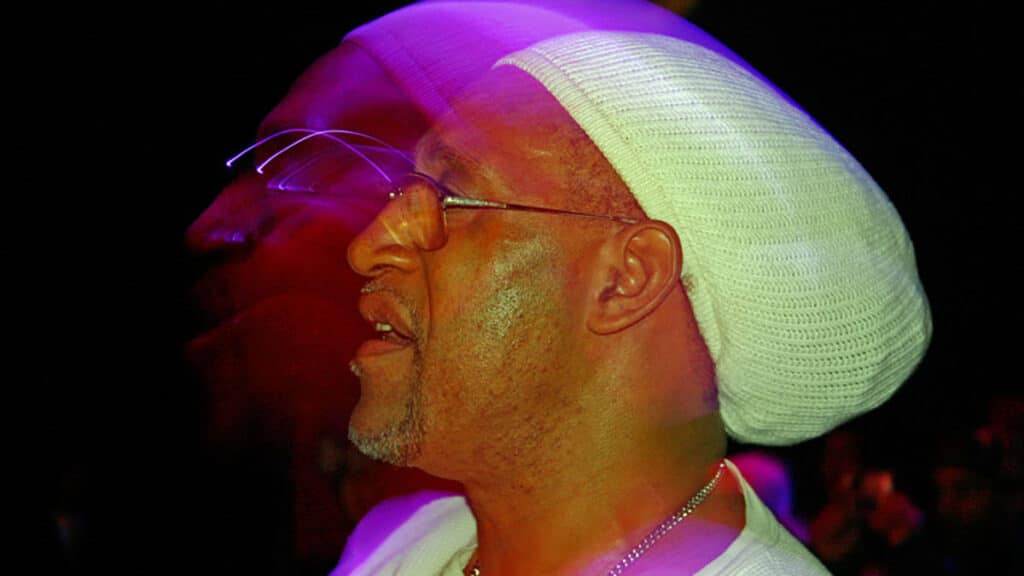The Birth of Hip-Hop
Hip-hop roots go way back, but what is generally considered the birth of hip-hop was the “Back to School Jam” block party at 1520 Sedgwick Avenue in Morris Heights, The Bronx, on August 11, 1973.
Clive Campbell and Cindy Campbell Changed the World

DJ Kool Herc (Clive Campbell) got most of the fame, but it was his sister Cindy Campbell who produced the party, made the flyer, dressed her brother, collected the money, and all that. We’re not surprised because women are the guardians of culture.
Hip-Hop blends African American and Latin, especially Caribbean culture. Anyone who runs in Indigenous and African Diaspora communities in the Caribbean will recognize hip-hop as an urban American version of Caribbean song, drum and dance traditions.
At the time, Herc was famous for his giant speakers. Nobody in the neighborhood had any money, so to have big sound was a big deal. The Campbell family is Jamaican American and Jamaican sound system culture seems like an obvious ancestor, but Clive has said he was too young in Jamaica to know about that. He says he was more influenced by the music of James Brown.
The Break
Clive was one of the originators of keeping the music flowing with two turntables which he picked up from the early Manhattan disco scene. In fact, one of the early names of hip-hop was “disco rap.”
He also noticed that dancers went wild during the drum breaks, so he started working on making the entire song out of the breaks. That’s pretty smart.
Break Dancing
Kool Herc also encouraged dancing (actually if there is music, most Latins and the African Diaspora will dance), so from Clive we get breakdancing or b-boying and b-girling.
The music was invented by African American kids in The Bronx, but it was Bronx Latin kids who brought the sophistication of their parent’s Palladium Ballroom mambo moves into breakdancing. Watch old Palladium Ballroom videos from the 1950s and you’ll recognize break dance moves. The similarity is striking.
We recognize many hip-hop traditions in Cuban rumba and trova; Puerto Rican bomba, plena and trovadores; Colombian cumbia and many related traditions. It’s hard to know who influenced who any more, but the similarities are obvious.
Hip Hop Now Rules the World
In the beginning, hip-hop was considered low-class, naughty, and even just a novelty. African Diaspora and Latin music always originate in the most disadvantaged communities, and the powers that be always say we’re bad ~ until they realize how much fun we are having (and that they can make lots of money from it).
Today hip-hop and its Latin version, reggaeton, dominate global youth culture. Urban music blends rap, hip-hop, disco, rock, Latin and trap so much that it can be hard to label the music as one type or another. We’re all coming together.
Many people contributed to the development of hip-hop before and after Clive and Cindy, but one of the milestones in its development was their block party. For that we want to say “Thank you” because you have brought so much joy and empowerment to African Americans and young people all around the world.
Straight out of The Bronx, hip-hop has become universal culture.
